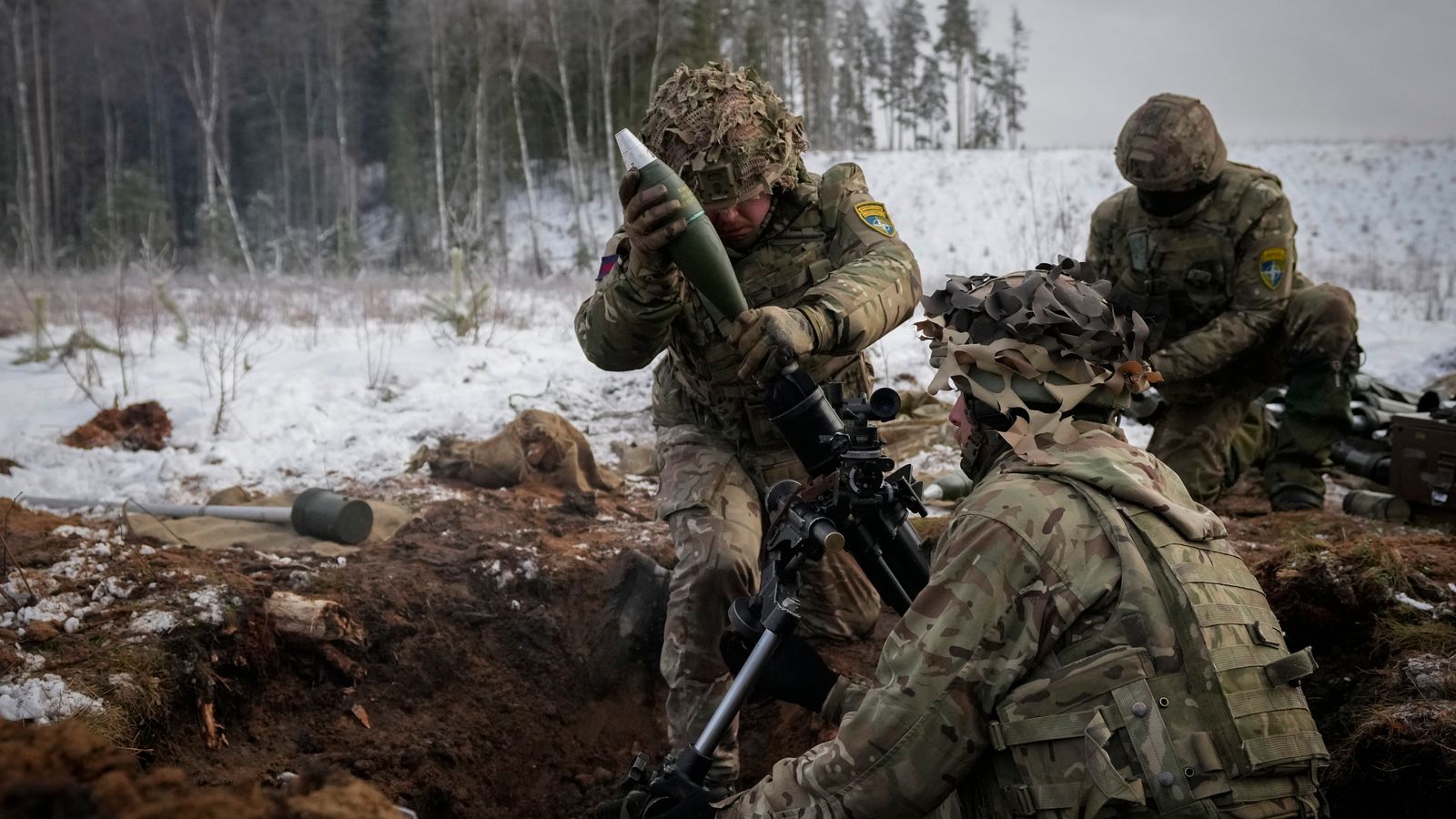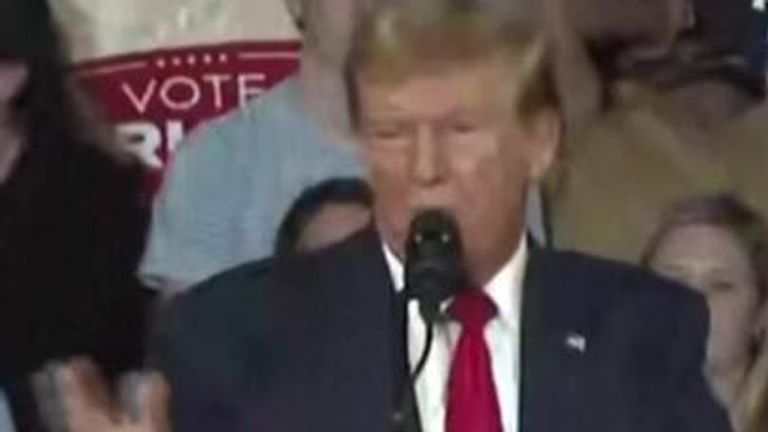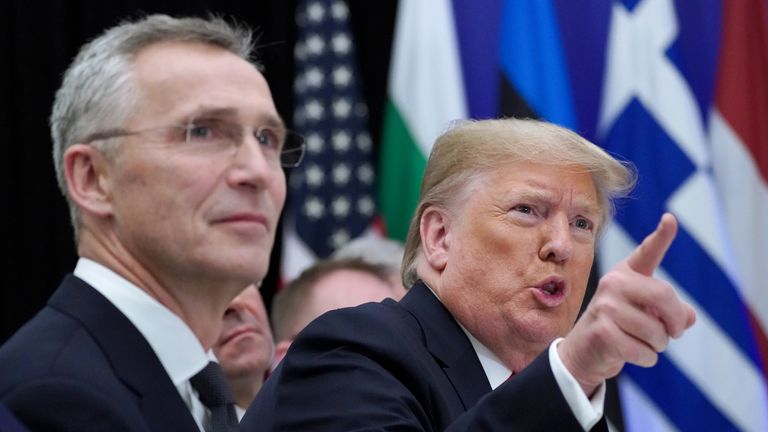It is clearly bad for NATO security that the potential next president of the United States has said he would encourage attacks on allies that fail to meet a core defence spending target.
But it is surely as much – or even greater – a challenge for the alliance that two-thirds of its 31 member states still have not increased the amount of national income dedicated to defence to a minimum of 2% (and experts deem that level to be woefully inadequate).
This is despite Russia’s war in Ukraine, Iran-linked conflict in the Middle East and the risk posed by an increasingly powerful China.
Donald Trump revived alarm bells across NATO capitals over the weekend when he claimed during a campaign rally that a leader “of a big country” once said to him “if we don’t pay and we’re attacked by Russia, will you protect us?”
Mr Trump, who is the frontrunner to be the Republican candidate for president, said he responded by warning: “You didn’t pay. You’re delinquent. Yes, let’s say that happened. No, I would not protect you. In fact, I would encourage them to do whatever the hell they want.”
If his remarks are to be taken at face value, then some comfort may be drawn from a quick glance at a map of Europe. It will show that the nations most vulnerable to any Russian invasion – the Baltic states and Poland – all comfortably pass the NATO spending test.
Yet, comments made by Mr Trump when he was commander-in-chief repeatedly raised doubts as to whether he would go to war with Moscow whichever NATO ally is targeted.
This stance fundamentally eroded the alliance’s founding principle of collective defence – an attack on one is an attack on all.
But each NATO ally that fails to spend at least 2% of GDP on defence is just as culpable of undermining the deterrent effect of Article 5.
Which countries are falling short?
Europe’s biggest economic power – Germany – remains one of the main offenders even though all allies pledged at a summit led by then prime minister David Cameron in Wales back in 2014 to “move towards” the 2% baseline within a decade – ie by this year.
Even nuclear-armed France is falling short, along with Spain, Italy, the Netherlands, Norway, Denmark, Portugal, Belgium, and the list goes on.
Britain should not rest easy.
It just about meets the spending pledge – though official NATO data shows the percentage spent on defence has dropped rather than risen over the past nine years from 2.14% in 2014 to an estimated 2.07% in 2023 despite the escalating threats.
Read more:
Turkey approves Sweden’s bid to join NATO
‘Critical’ for NATO allies to grow defence budgets, says Shapps
Women jailed for sending threats to judge in Trump case
In addition, a damning report by MPs earlier this month found the UK military’s readiness for war to be “in doubt”, with limited stockpiles of weapons and ammunition, and more service personnel leaving the armed forces than being recruited.
Trump could still halt meaningful support to allies
Mr Trump’s primary criticism about NATO is over what he rightly sees as freeloading by a majority of allies that have for decades relied on the protective shield provided by the much more powerful US military rather than ensuring their own defences are credible and capable.
It was a stick he beat the alliance with during his four years as president, dangling the threat of withdrawing the US from NATO – a move that would deal a near-death blow to an organisation created after the Second World War as the cornerstone of Euro-Atlantic security.
Last December, legislation was passed in Washington that prevents a sitting president from unilaterally exiting the alliance without the approval of lawmakers.
While this means Mr Trump may not physically be able to make good on such a threat should he win a second term, he could still halt meaningful support to allies, which would be almost as damaging.
US will remain ‘strong and committed NATO ally’, alliance chief says
Responding to his latest anti-NATO outburst, Jens Stoltenberg, the veteran alliance chief, who navigated allies through the first Trump presidency, issued an unusually blunt retort.
“Any suggestion that allies will not defend each other undermines all of our security, including that of the US, and puts American and European soldiers at increased risk,” he said. “I expect that regardless of who wins the presidential election the US will remain a strong and committed NATO ally.”
It is a sentiment all allies in Europe will be clinging to.
But they would be far better off focusing their energy on fixing the problems closer to home by urgently rebuilding credible military forces capable of deterring threats with or without US support.


